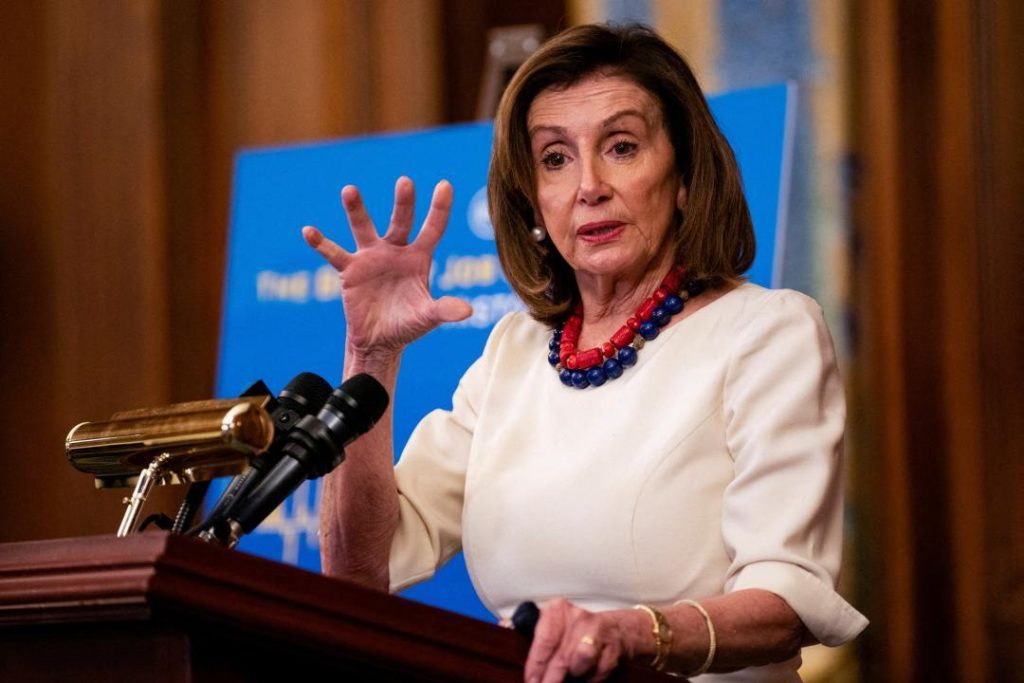
What is the PELOSI Act and Why is it Named After Former US Speaker Nancy Pelosi?
The Preventing Elected Leaders from Owning Securities and Investments (PELOSI) Act, reintroduced by US Senator Josh Hawley, is a bill that seeks to ban lawmakers and their spouses from owning or dealing in stocks while holding office. The act aims to prevent conflicts of interest and ensure that elected officials prioritize the interests of their constituents rather than their own financial gain.
But why is the act named after former US Speaker Nancy Pelosi? To understand this, let’s take a closer look at the history of the bill and its connection to Pelosi.
Nancy Pelosi, who served as the 52nd Speaker of the US House of Representatives from 2007 to 2011 and again from 2019 to 2023, has been a prominent figure in the Democratic Party. During her tenure, Pelosi’s family’s investments in the stock market have been subject to scrutiny. In 2020, it was reported that Pelosi’s husband, Paul Pelosi, had made significant gains from his investments in technology stocks, including Amazon and Alphabet, the parent company of Google.
The PELOSI Act is not a new concept, but it has gained renewed attention in recent years due to concerns over conflicts of interest among lawmakers. The bill was first introduced in 2019, but it did not gain much traction at the time. However, with the growing awareness of the issue, Senator Hawley has reintroduced the bill, and it is now gaining momentum.
Under the PELOSI Act, lawmakers would be prohibited from owning or dealing in individual stocks, as well as other types of securities and investments. However, they would be allowed to invest in mutual funds (MFs), exchange-traded funds (ETFs), and Treasury bonds. This would ensure that lawmakers can still invest in the market but without the potential for conflicts of interest.
Proponents of the bill argue that it would help to increase transparency and accountability among lawmakers. By preventing them from owning individual stocks, the PELOSI Act would reduce the likelihood of lawmakers using their positions of power to influence the market or make decisions that benefit their own financial interests.
Critics of the bill argue that it would restrict lawmakers’ ability to invest in the market and could potentially harm their financial well-being. They argue that lawmakers should be allowed to make their own investment decisions, as long as they disclose their holdings and avoid any conflicts of interest.
In addition to the PELOSI Act, there are other measures being proposed to address the issue of conflicts of interest among lawmakers. For example, some lawmakers are calling for the creation of a blind trust, where they would transfer their investments to an independent trustee who would manage their assets without their direct involvement.
The PELOSI Act is not the only bill aimed at addressing conflicts of interest among lawmakers. The Financial Services Modernization Act, introduced by Representative Katie Porter, would require lawmakers to disclose their investments in a more detailed and transparent manner. The bill would also require lawmakers to divest themselves of any investments that could create a conflict of interest.
In conclusion, the PELOSI Act is a bill that seeks to prevent conflicts of interest among lawmakers by prohibiting them from owning or dealing in individual stocks and other securities. The act is named after Nancy Pelosi, who has been the subject of scrutiny over her family’s investments in the stock market. While the bill has its supporters and detractors, it is an important step towards increasing transparency and accountability among lawmakers.



